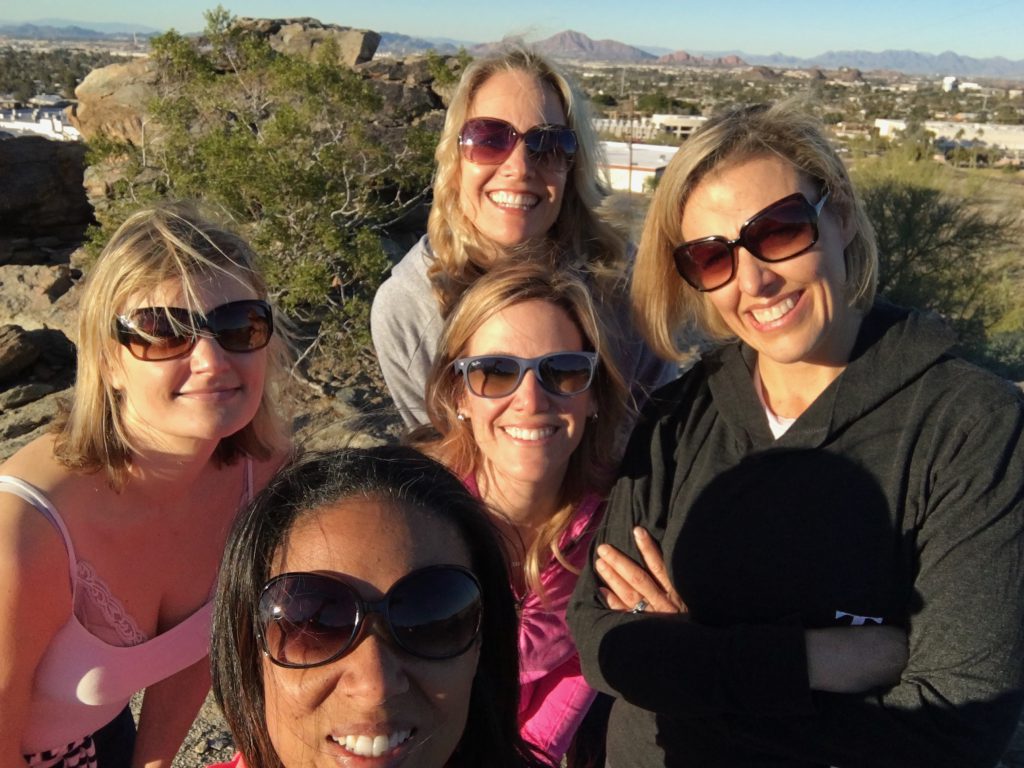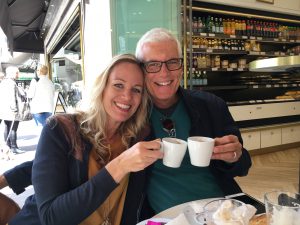Can you articulate what experiences you need to have with others to feel closer to them? And did you know that while there are the 3 main requirements of all healthy relationships (consistency, positivity, and vulnerability, taught in Frientimacy), how we each judge our closeness to someone else will look different based, in part, on our temperament? With the December holidays often gathering us with friends and family, and the soon-following New Year that inspires us to prioritize our relationships in the year ahead; let's take a moment to look at how our temperaments can inform the bonding process.
By reminding ourselves how we're each wired differently we can better understand 1) how to increase our chances of feeling connected in our interactions 2) and hopefully also to feel more aware that others might need something different.

How Myers-Briggs Informs the Bonding Process
There are so many nuanced and amazing ways to better understand ourselves but since Myers-Briggs Temperament Inventory (MBTI) is one of the most popular, I thought I'd use that one today to illustrate how we are each looking for something different in our interactions and relationships.
While there are 16 different types of people identified within the Myers-Briggs sorter, we all tend to fall under one of 4 major groups: the Artisans, the Guardians, the Idealists, and the Rationals. With that said, we are all incredibly unique and might have elements of many, or all, of them. What's most important is simply reminding ourselves to take a moment to assess what it takes for us to feel close to someone else AND to not assume that everyone else feels the same. :)
(It's not imperative for you to know your type to identify with one the following four explanations, but if you'd like to take the inventory, I know there are multiple free assessments you can search for, and if you want to purchase from the official Myers-Briggs Foundation you can do so here.)
- The Artisans, or SP's: Our fun-loving, optimistic, spontaneous, and creative Artisans (roughly 40% of the population) feel most close to people when they play together. They tend to look back on a family/friend gathering and judge it a success if there were fun things-to-do, game-playing, and lots of activity. In general, it will be more difficult for them to feel close to someone they deem boring, or who doesn't share their interests or hobbies. The more they can play with someone or engage in a shared activity together-- the more they will enjoy that relationship.
- The Guardians, or SJ's: Our loyal, responsible, hard-working, thoughtful, and organized Guardians (roughly 40% of the population) feel most close to people when they support each other. They tend to look back on a family/friend gathering and judge it a success if they feel everyone participated in a tradition, followed social or family etiquette by getting along, helped prepare for or plan the events, and basically showed priority to the value of being together. In general, it will be more difficult for them to feel close to someone if they feel that person isn't "carrying their weight," or "living up to expectations." The more they feel needed and feel that others are playing their roles and contributing-- the more they will enjoy that relationship.
- The Idealists, or NF's: Our idealistic, romantic, deep-feeling, and passionate Idealists (roughly 10% of the population) feel most close to people when they feel seen and understood. They tend to look back on a family/friend gathering and judge it a success if they feel they had meaningful conversations, which included people expressing an interest in their lives, ideas, and feelings; and trusting them to share the same. In general, it will be more difficult for them to feel close to someone if they feel like the conversations were "shallow" which happens if the conversations stayed on "updating" and "concrete" topics instead of on the sharing of lives and feelings. The more they feel expressed, seen for who they are, and affirmed-- the more they will enjoy that relationship.
- The Rationals, or NT's: Our pragmatic, skeptical, strategic, utilitarian, and autonomous Rationals (roughly 5-10% of the population) feel most close to people when they feel intellectually stimulated. They tend to look back on a family/friend gathering and judge it a success if they helped solve a problem, were asked for their opinion on something they deemed important, or participated in a rousing conversation that challenged them to think. In general, it will be more difficult for them to feel close to someone if they don't feel like that person values, or is capable of, thinking for themselves, examining abstract subjects such as politics, economics, technology, or the exploration of how things work. The more they feel respected for their intellectual processing and the willingness of others to engage with them in their areas of interest-- the more they will enjoy that relationship.
Maximizing the Bonding Process
It is imperative that I understand what I most need in order to leave a gathering feeling more connected to those I love. When I can articulate what I need-- be it activities, traditions/support, heartfelt conversation, or sharing stimulating ideas-- I can be more thoughtful about how I might foster those moments.
But just as powerful as realizing that I need to take the initiative of getting my needs met is the realization that I will want to also be purposeful in engaging in the actions that will feel bonding to those I love and cherish. That might mean:
- Playing games or lacing up ice-skates with my Artisan... even if I am tempted to go clean the kitchen or don't feel very skilled at the activity, remembering that they will feel closer to me by building that memory.
- Attending the family meal, dropping off a thoughtful gift, or showing up at the religious event with my Guardian... even if I don't find the event "meaningful" or would rather be playing than helping show support or giving in service, remembering I can love them by supporting the people, institutions, and ideals that they love.
- Staying focused and asking follow-up questions with my Idealist... even if it feels awkward, remembering they feel valued by the interest that I show.
- Asking what book my Rational is reading these days and exploring what they think about it.... even if the topic is "boring" to me, remembering that they feel respected when we share opinions and thoughts.
Our temptation might be to judge each others way of bonding as "shallow," "boring," "exhausting," or simply as "not me." But being in relationship with others calls us to be intentional about our needs and theirs.
May you end December feeling ever closer, and more connected, to those in your tribe.
xoxo
p.s. Does this resonate? Is this helpful? In what ways might you apply this information to benefit your relationships? :)



 for
for 